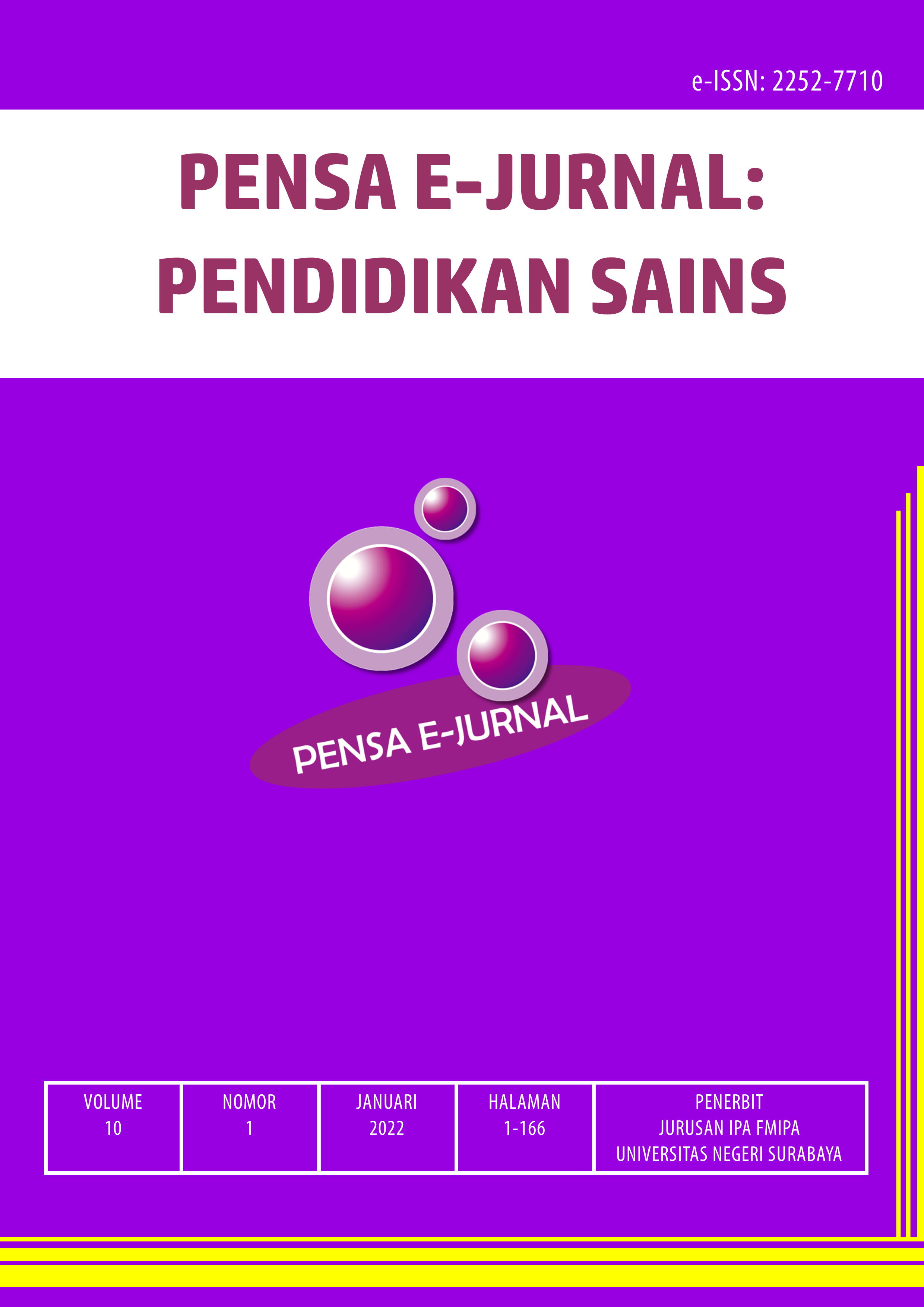SOME CONSTRAINTS IN IMPLEMENTING NUMBERED HEADS TOGETHER COOPERATIVE MODEL IN ONLINE LEARNING IN THE COVID-19 PANDEMIC
DOI:
https://doi.org/10.26740/pensa.v10i1.41599Keywords:
Numbered Heads Together (NHT) cooperative model, constraints learning, online learningAbstract
This study aimed to reveal some constraints faced by the teacher and students in implementing Numbered Heads Together (NHT) cooperative model in online learning. This study used a case study approach with the research subject is one science teacher who used the Numbered Heads Together (NHT) model in online learning on three learning topics and five students of VIII-A class of Muhammadiyah 2 Taman Junior High School who attended the learning. The instrument consisted of learning plan observation sheets and interviews with the data collection techniques used were observations, document analysis, and interviews. The results of the study show that there are some constraints that come from the teacher and students in implementing Numbered Heads Together (NHT) cooperative model in online learning. Suggestions that can be given include: 1) the teacher must be more creative and innovative so that the online learning atmosphere is fun, not boring, and motivates all students to be actively involved, 2) the teacher must have a good understanding of the steps by the cooperative model Numbered Heads Together (NHT), 3) the teacher must be able to create a condition where students can conduct discussions seriously, and 4) the teacher can start to give rewards to students in the form of verbal praise.
Downloads
Downloads
Published
How to Cite
Issue
Section
 Abstract views: 161
,
Abstract views: 161
, PDF Downloads: 147
PDF Downloads: 147

















